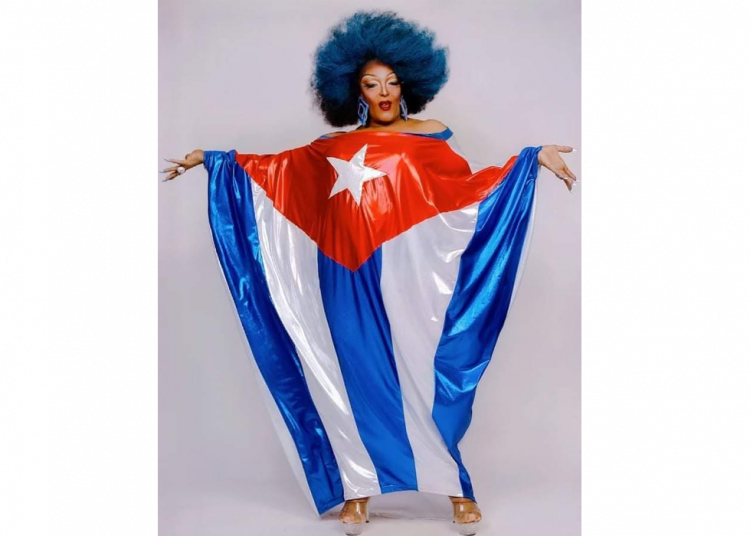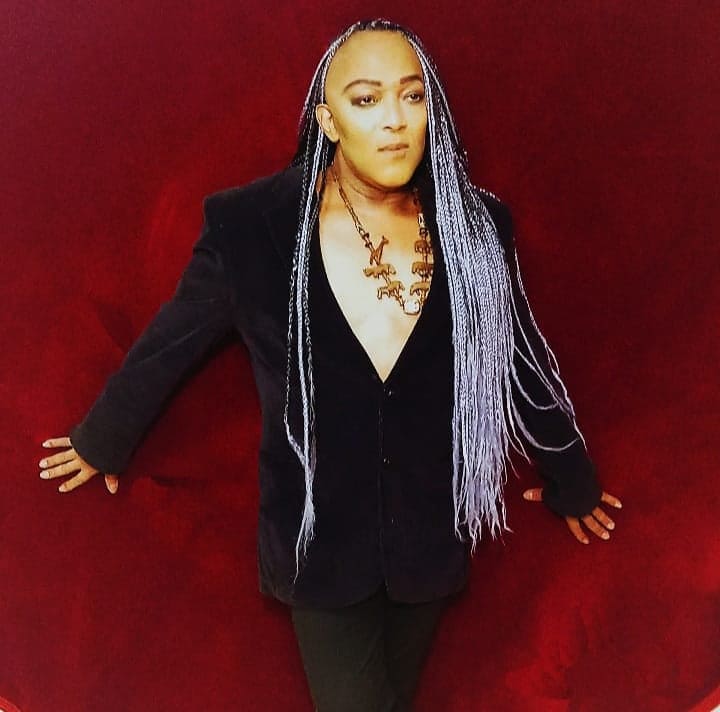Ariel Cumbá has lived in Valencia for almost two decades and in the city of Berlanga has made an irrepressible career! Which goes from acting in a famous cabaret to ballet and singing classes, tours, presentations, etc. He briefly updates me on his projects, some stalled by COVID-19:
“I’m preparing a tour of Mexico and Latin America with a show that will be re-released in March here in Spain, ‘Mujeres,’ a kind of musical where I play various characters. With the singer Lucrecia there will be a ‘remix’ of the song ‘La Mamma’ that I published a few years ago and I’m working hard on an album that stopped due to the pandemic: El boulevard de los boleros, a compilation of almost forgotten pieces and other more current ones by Cuban composers. Soon two dance singles by Odry Dj will be released and I have a film project in Barcelona with the director Juanfer Fernández. There’s more, but I can’t tell you about it,” he tells me between laughs. What now translates into successes and applause has behind it a story of overcoming and resistance that could well be taken to the pages of a book. I don’t rule out it happening at any time.
“What we gays of my time experienced is beyond belief”
The first time I spoke with Ariel Cumbá was at the Hotel Nacional de Cuba — on the occasion of the premiere of the film Fátima or El Parque de la Fraternidad by Jorge Perugorría. For the soundtrack of the film he performed “Vieja luna” by Orlando de la Rosa. That was his reunion with Cuba after 25 years of absence.
He was born in a home of musicians, there undoubtedly his influences. His father Oney Cumbá Escollies, composer and arranger, triumphed in the La Corte Suprema del Arte radio program back in 1937. He was a famous guitarist between the 1950s and 1960s accompanying great divas such as La Lupe, Elena Burke, Moraima Secada, Ela Calvo…
“My father didn’t want any of us to be musicians, despite having a whole family full of artists. He didn’t let me study piano because he said it was for sissies. Now I’m a sissy and I’m not a pianist. They wanted me to be a doctor, but I don’t like blood. Later, over the years and my work, they realized that I was never wrong,” he recalls.
His professional training began at the Guillermo Tomás Conservatory of Music in Guanabacoa where he studied singing, theory, sol-fa and piano. He continued to better himself at the Cuban National Ballet School where he specialized in classical ballet, contemporary dance and Afro-Cuban Folklore. With all this knowledge he performed on different stages of Cuban theaters and cabarets until he was admitted as a dancer and solo singer of the famous Tropicana Cabaret.
“It took a lot for them to recognize me, to respect my personal life. It was not easy at all. What we gays of my time experienced is beyond belief and most of us had to leave because of that. However, leaving Cuba for good was never in my mind, much less being separated from my mother. Getting away from my family was the hardest part,” he maintains.
Away from the island and after several of the events that surrounded him, Ariel Cumbá decided at risk to take up his career again where cross-dressing plays an essential role. “Over time it became a real way to say what I feel. I have always said that I am an artist who transforms into whatever he wants. It has nothing to do with my intimate life. There are those who think that to be a transvestite you must necessarily be gay, a mistake. As far as I know, I was one of the first in Cuba to go out dressed as a woman and the first time I acted like that, people applauded me for about fifteen minutes, it was amazing. Now, how to do it without offending women? That is precisely why I am such a perfectionist when it comes to walking, talking… What you can never do is ridicule a woman, in no way. Assuming you are a character, not a grotesque caricature.”
You told me that you got to know Celia Cruz back in 1991?
Son, wonderful things have happened to me in my career and that was one of them! I met her in Barcelona at one of her concerts and, all of a sudden, I found myself in front of La Reina. I was speechless. She asked me if I was related to Cumbá — referring to my father — and she got very excited. In 2000 I participated with Lucrecia in a concert where she performed and she remembered me: “Cumbasito,” she told me, and we talked about my father again, she told me stories…. A tender, wonderful and honest woman, really.
For ethnologist, writer and poet Miguel Barnet, “Ariel Cumbá is an extraordinary performer with a deep, metallic voice.”
You move in many musical genres.…
I’ve even sung opera arias, but when I sing a bolero I transform. There appear the Elenas and all those stars. That was what I learned at home; can you see how education has an influence?
By the way, among so many plans and projects, don’t you plan to sing in Cuba again?
Of course I would love to! I’ll tell you more: I have written the script for that show entitled “Vuelvo II.” I already had the experience of performing at the San Francisco de Asís Minor Basilica and Convent in Old Havana with Ernán López-Nussa, the double bassist Gastón Joya, and also at the América Theater with the Jazz Band of maestro Joaquín Betancourt, 2019 National Music Prize. But, this time, I would like to perform with several members of the LGBTIQ+ collective and include an orchestra, dancers.
I know you are abreast about Cuba and its new laws. What do you think about the possibility of legalizing same-sex marriage?
It’s a giant step! I’m happy. That will allow the collective to become more established. It was about time and I think that Spain, in that sense, is a good model to follow. It has been shown that things can be changed not only in Cuba but throughout the world. The point is to love each other…and in that there is no distinction.












